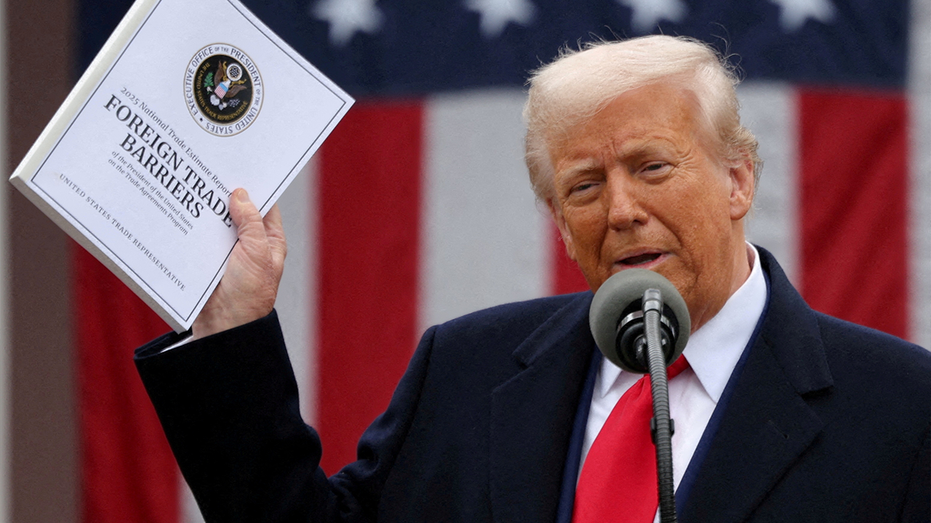World Leaders React to Trump's Sweeping Tariffs: Tumultuous Times Ahead

Sarah Johnson
April 4, 2025
Brief
President Trump's sweeping new tariffs spark global backlash from China, the EU, and allies, igniting a trade war and raising concerns over economic uncertainty and diplomatic tensions.
World leaders are raising eyebrows—and tempers—over the sweeping tariffs announced this week by President Donald Trump, impacting nearly all U.S. trading partners. The White House has implemented a flat 10% tariff on imports across the board, but some countries have been handed significantly heftier tax hikes. Vietnam, for example, received a staggering 46% tariff a day after reducing its own tariffs on U.S. imports. Talk about a diplomatic slap in the face.
China, however, takes the unenviable top spot, slammed with an additional 34% blanket tariff on top of the 20% tariff already imposed earlier this year. This brings the total tax on Chinese goods imported into the U.S. to a whopping 54%, just shy of Trump's campaign promise of 60%. China’s Commerce Ministry responded with fiery rhetoric, warning of countermeasures and stating, "There are no winners in trade wars, and there is no way out for protectionism." Their Foreign Ministry added that protectionism leads to nowhere and urged Washington to engage in fair consultations. Clearly, Beijing isn't holding back.
The European Union also felt the burn, slapped with a 20% blanket tariff in addition to existing steel, aluminum, and auto tariffs. European Commission President Ursula von der Leyen didn’t mince words, calling it a betrayal by an old ally. She warned that these tariffs could spiral uncertainty globally and pledged countermeasures to protect Europe’s economy, particularly its pharmaceutical and auto industries. "If you take on one of us, you take on all of us," von der Leyen declared, firmly planting the EU’s flag in this escalating trade war.
Meanwhile, Britain is taking a more measured approach, assessing which tariffs could be implemented with the least impact on its economy. British Trade Secretary Jonathan Reynolds assured Parliament that the U.K. wouldn’t hesitate to act if negotiations with Washington fail, but the country’s stance remains more reserved compared to other nations.
Canada’s Prime Minister Mark Carney, on the other hand, vowed to fight back. He warned that these tariffs would fundamentally alter the global trading system and criticized their negative impact on both the U.S. and Canadian economies. "In a crisis, it's important to come together," Carney said, urging united action to counter the tariff fallout.
Mexico, Japan, and Australia also voiced strong reactions. Mexican President Claudia Sheinbaum avoided direct confrontation, instead focusing on strengthening Mexico’s economy against any impacts. Japanese Prime Minister Shigeru Ishiba questioned the logic of uniform tariffs and promised to prioritize Japan’s national interest while considering its response. Meanwhile, Australian Prime Minister Anthony Albanese didn’t hold back, calling the tariffs "totally unwarranted" and accusing the U.S. of acting contrary to their partnership. His cutting remark? "This is not the act of a friend." Ouch.
Amid this global backlash, Trump has touted the tariffs as a historic move to bring back the "American Dream." Whether that dream turns into a nightmare for global trade remains to be seen. One thing is certain: the storm clouds of economic uncertainty are gathering, and world leaders are bracing for what’s next.
Topics
Editor's Comments
Honestly, Trump’s tariff spree feels less like a calculated chess move and more like flipping the Monopoly board when you’re losing. The global reactions alone make it clear that this isn’t just going to be a bumpy ride for international trade—it’s going to be a rollercoaster with more loops than anyone signed up for.
Like this article? Share it with your friends!
If you find this article interesting, feel free to share it with your friends!
Thank you for your support! Sharing is the greatest encouragement for us.



